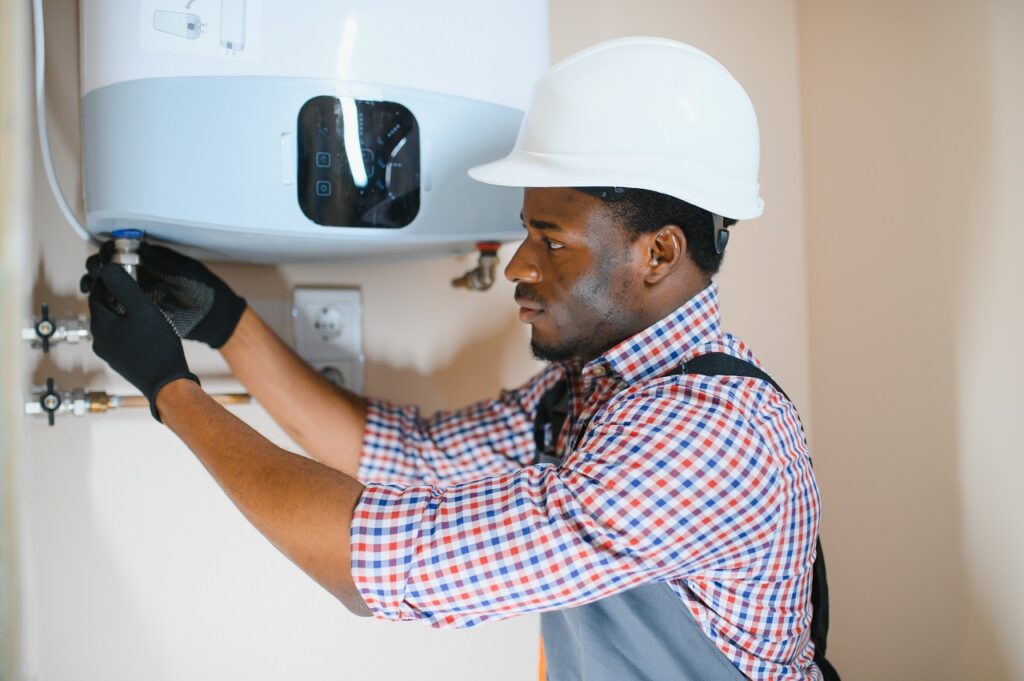When it comes to maintaining a comfortable and functional home, ensuring your water heater is in optimal condition is a necessity. Over time, even the best water heaters can experience issues, whether due to normal wear and tear, improper maintenance, or unforeseen malfunctions. Recognizing the signs of water heater problems quickly can save you time and money, preventing the need for more extensive repairs or replacements down the line.
We will explore some of the most common water heater issues faced by homeowners and provide a step-by-step approach to diagnosing these problems effectively. Our goal is to equip you with the knowledge to identify when you can handle a repair on your own and when it’s best to call in our professional technicians. Understanding the intricacies of your home’s water heater can empower you to take prompt action, ensuring you and your family continue to enjoy uninterrupted access to hot water.
Identifying Common Water Heater Issues in Residential Properties
In many homes, water heaters are indispensable, providing the necessary comfort of hot water for various daily activities. However, these essential appliances can sometimes exhibit problems that need immediate attention. Understanding the signs of water heater troubles is the first crucial step in preventing further damage and expensive repairs. The most common indicators include water that is not hot enough, unusual noises, water discoloration, and leaks around the base of the heater. If the water temperature fluctuates or fails to heat to the desired level, it could signify malfunctioning heating elements or an incorrectly set thermostat. Unusual noises like popping, cracking, or rumbling from the tank often suggest sediment build-up, which can reduce the water heater’s efficiency and increase running costs. Meanwhile, rusty or muddy water usually points to corrosion inside the tank, necessitating prompt intervention to prevent further deterioration.
Step-by-Step Guide to Diagnosing Your Water Heater Malfunctions
Once you’ve detected an issue with your water heater, accurately diagnosing the problem is pivotal before any repair work begins. First, check the thermostat settings to ensure they are at the appropriate temperature, typically between 120 and 140 degrees Fahrenheit for residential units. If the settings are correct but the water remains cold or lukewarm, testing the heating elements with a multimeter can help ascertain their functional state. Additionally, inspecting the pressure relief valve, which safeguards against excessive pressure and temperature by releasing water when necessary, is crucial. If the valve leaks or fails to operate correctly, it must be replaced to ensure safety and proper functionality.
Also, assess the condition of the anode rod. This component sacrifices itself to prevent rust within the tank. If more than six inches of the core steel wire is visible, or if the rod is coated heavily in calcium, a replacement is needed to continue protecting the tank from corrosion. Finally, examining the tank’s integrity for any signs of leaks or corrosion can reveal whether repairs or a full replacement are warranted. By following these diagnostic steps, you can gain a clearer understanding of your water heater’s condition and decide whether a simple fix or professional help is necessary.
Essential Tools and Supplies for Home-Based Water Heater Repairs
For homeowners attempting to handle minor water heater repairs, having the right tools and supplies is crucial to successfully addressing common issues. Basic tools that should be in your toolkit include an adjustable wrench, a screwdriver set, pliers, and a multimeter for electrical diagnostics. Additionally, it’s advisable to have a pipe wrench, Teflon tape, and plumbing solder on hand for any pipe-related issues that might arise.
Alongside tools, some essential supplies include replacement parts such as thermostats, heating elements, anode rods, and pressure relief valves. These parts are commonly affected components and having them available can save time, especially if your water heater begins malfunctioning during non-business hours. Knowing how to safely and effectively use these tools and supplies can empower homeowners to perform basic maintenance, thereby extending the life of the water heater and ensuring it runs efficiently.
When to Call the Professionals: Understanding the Limits of Home Repairs
While taking initiative and handling minor adjustments or repairs can be cost-effective for homeowners, there are instances where calling professional technicians is necessary. Significant issues such as leaks in the tank, serious electrical faults, or inconsistent heating across the system are signs of potentially complex problems that require professional intervention. Safety is paramount, and water heaters, especially those that are gas-powered, can pose severe risks if improperly handled.
Understanding the limits of DIY solutions not only protects your home from further damage but ensures that any warranties remain valid. Many water heater repairs necessitate expert knowledge and tools that go beyond the typical homeowner’s toolkit. Our technicians have the training to diagnose complex issues quickly and accurately, providing peace of mind and guaranteeing that the system remains efficient and safe. By recognizing when it’s time to call in the experts, homeowners can avoid costly mistakes and extensive damages.
Conclusion
Throughout our discussion on recognizing signs of necessary water heater replacement and the cost considerations involved, it’s clear that maintaining your water heater is not merely about fixing problems as they arise. It’s about understanding your system, recognizing the early signs of trouble, and making knowledgeable decisions on repairs or replacements. Our goal at Advance HAWS is to ensure that your water heater functions efficiently and reliably, providing you with comfortable, safe hot water access.
If you’re facing water heater issues or considering a system upgrade, remember that our professionals are here to provide guidance and expert services. We offer comprehensive water heater repair in Lancaster, tailored to meet the specific needs of both residential and commercial settings. Contact us today to learn how we can enhance your water heating system’s performance and help you achieve optimal efficiency and reliability.



